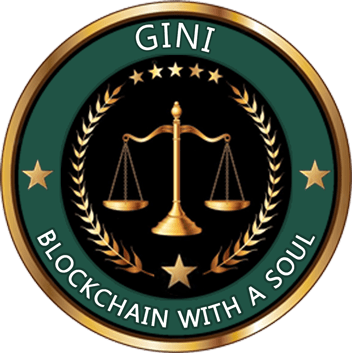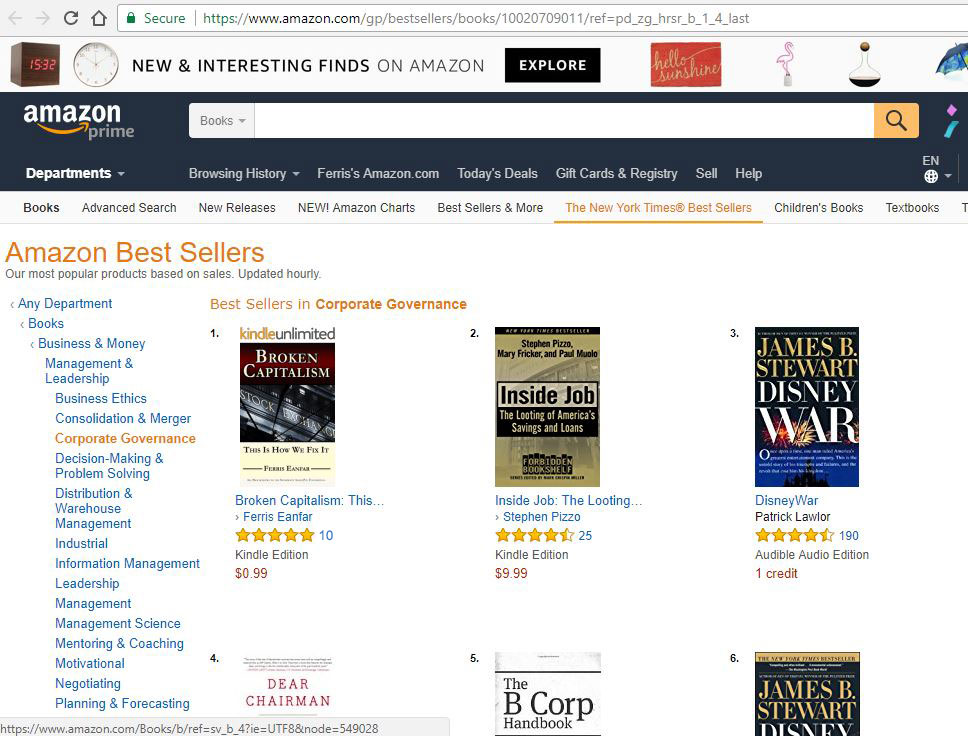We All Lose from Systemic Injustice. I have a good friend who is a founder of a multibillion-dollar company who has been thoroughly eviscerated by a biased judge in a protracted court battle. In fact, I know several people who have been on the receiving end of court decisions that were substantially corrupted by institutional bias, if not blatant human corruption. Outrage is the natural human response to all forms of corruption because corruption violates our sense of fairness, justice, and certainty in the social contract of civil society. When corruption and institutional bias deliver injustice and unpredictable outcomes, we all lose sooner or later because institutional bias and corruption tend to metastasize and infect other institutions and value systems throughout a society.
Placing Injustice into Perspective. It’s never easy to endure unfairness and injustice, but the greatest injustice is a martyr whose life is lost with nobody around to care. We all have a finite number of seconds to live. Every moment wasted in pursuit of perfect justice is a moment that is no longer available to achieve meaningful happiness and fulfillment during our brief existence on this planet. Based on my experience, research, and writing about these topics for years, it’s clear to me that, sometimes, obtaining perfect fairness and justice is not always possible within a reasonable amount of time, i.e., within the finite amount of time available to mortal humans.
Factors of Power. When justice is not possible within a reasonable amount of time, we have a choice: fight or surrender. The choice we make depends on the facts and circumstances of each case; but most importantly, in the real world, it depends on how much power we have in each environment at each moment. Justice favors the powerful; and the amount of power we have in any situation depends on several factors, including money, wisdom, knowledge, experience, beauty, professional position, social status, social network, control of the message, our understanding of human nature, among a long list of less significant factors that can produce incremental influence. Depending on the situation, it’s usually not enough to wield only one of these factors of power. In today’s hyper-connected world, having meaningful power–enough to substantially control our own destiny–requires several of these factors working for us simultaneously.
Knowing When to Surrender. This is often the hardest decision to make, especially for people whose identity is dependent upon their self-perception of intelligence and success. This self-perception is often driven by their ego, pride, and insecurity, which can be significant liabilities in any high-stakes situation. When the stakes are high, and when true justice is not possible for any reason, the best way to make this decision is to remember that sometimes we can achieve a greater good than mere justice alone. This “greater good” is situation-specific, but in general, it helps to remember that the laws of man are not as powerful as the laws of human nature. If our pursuit of perfect justice violates the laws of human nature, we will usually lose in court and we will lose the hearts of the humans we hold dear.
Chinese Handcuffs. It’s often useful to think about the analogy of the Chinese Handcuffs: The more you fight, the tighter the bondage. The application of force can sometimes tighten the noose around our own neck. This is a difficult principle for many people to truly understand, especially when their emotions are controlling their actions. In practice, when perfect justice is not reasonably possible, there is no other rational choice but to let go of the arbitrary notion of perfect justice and move on with our lives to pursue more important goals. We cannot nourish our bodies or our relationships with perfect justice. We cannot pay our bills with perfect justice. And we cannot feed our families with perfect justice.
The Pursuit of Justice as a Religious Crusade. An impassioned pursuit of justice is often warranted, but there is no rational reason to pursue justice as a religious crusade between good and evil unless there is a clear path to truly meaningful justice. A “clear path” means that we currently have (or can acquire) the Factors of Power necessary to achieve meaningful justice within a reasonable amount of time. Not being able to think rationally and realistically about our strengths and weaknesses in each situation, at each moment, leads to almost certain defeat and unnecessary self-destruction.
Emotions Are Our Bondage. Understanding the incentives and interests of others is also important. Sometimes, the more we push people into untenable or unattractive moral crusades, the harder their hearts unconsciously become toward us, which reduces their conscious capacity to support our missions and organizations. In this case, our emotions are the true source of our bondage because they blind us to the reality of other people’s feelings and interests. This sabotages our success and harms our own long-term interests because nothing truly significant in this world can be accomplished without the support of others.
Tightened Control Often Results in Lost Control. This is another application of the Chinese Handcuffs analogy: When people feel like victims of injustice, their instinct is often to tighten their grip on everything in their environment. This occurs because the injustice makes them feel powerless and out of control. But tightening their grip on everything is often a mistake because it drives away the people who are essential to achieving the best possible outcome. Additionally, tightening their grip is usually accompanied by a narrowing of perspective, which leads to blindspots and emotion-based decision-making that can conceal risks and dangers that threaten our ability to achieve the best possible outcome.
Achieve the Best Outcome Humanly Possible. When perfect justice is not possible, the only rational goal is to strive for the best outcome humanly possible. The “best outcome” should take into account the full scope of our lives, which may require significant personal reflection and thoughtful introspection. Even when the laws of man fail us, abiding by the more powerful laws of human nature can bring us closer to goals that are even more important than perfect justice: love, peace and fulfillment.
Prioritize Wisdom Above Justice. Wisdom is not the same as justice. Wisdom is making the right decisions, at the right time, to achieve the best possible outcome in any situation. Wisdom is what enables people to live fulfilling lives. Wisdom knows that when perfect justice is not possible, injustice must be managed gracefully to live and fight other battles. Our influence over the outcome of any situation depends upon our understanding of the immutable laws of human nature far more than the mutable laws of man. No single injustice can define or destroy our lives unless we fail to escape our own emotional prisons. Sometimes perfect justice is possible, but more often it is not. Failing to place wisdom above justice delivers neither justice nor wisdom. Failing to prioritize wisdom over justice inevitably results in a life without love or happiness. That’s the ultimate injustice.
About Ferris Eanfar
Ferris Eanfar has over 20 years of experience in technical, financial, media, and government intelligence environments. He has written dozens of articles and several books in the fields of Economics, Crypto-Economics, and International Political Economy, including Broken Capitalism: This Is How We Fix It and GINI: Capitalism, Cryptocurrencies & the Battle for Human Rights and the Global Governance Scorecard. Ferris is a cofounder of the Gini Foundation, which builds unique cryptocurrency systems to protect human rights, among other benefits; and the CEO of the AngelPay Foundation, a nonprofit financial services company with a mission to “return wealth and power to the creators of value.” To learn more about Ferris, please visit the About Ferris page.Visit Ferris on:

 Gini Website Coming Soon. We (
Gini Website Coming Soon. We (
